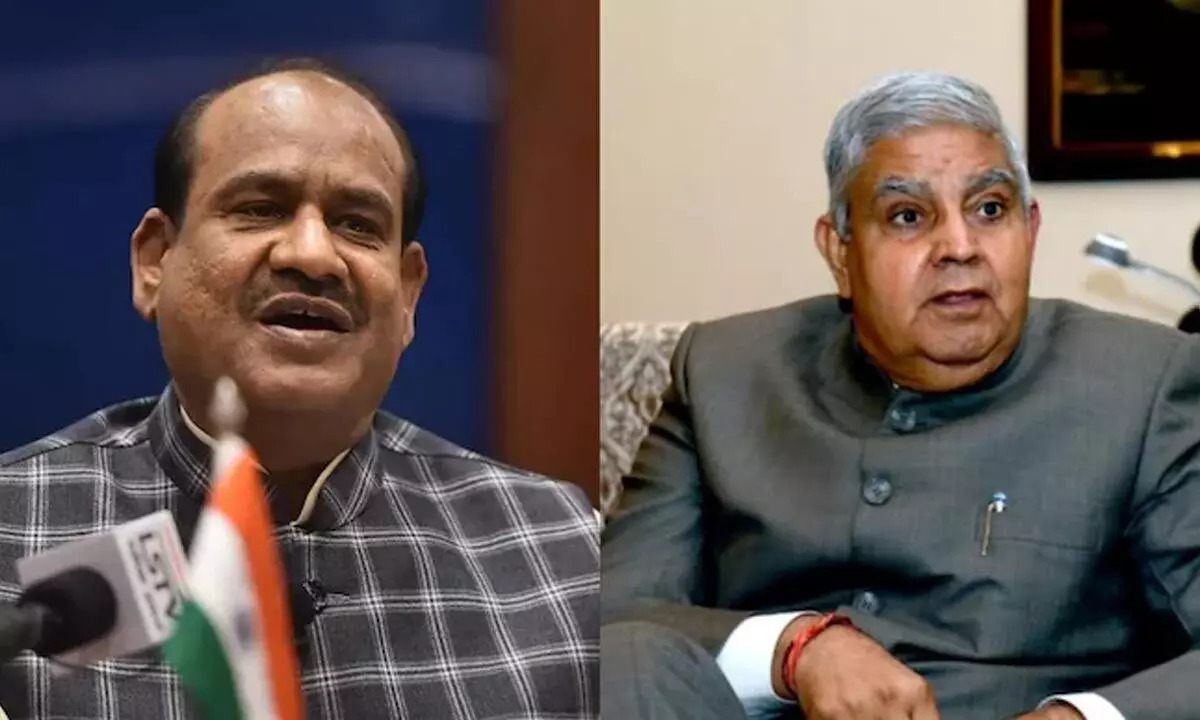The Rajya Sabha Chairman, Jagdeep Dhankhar, stated that the Upper House had registered 79 percent productivity, whereas Speaker of the Lok Sabha, Om Birla, stated that the House had recorded 74% productivity.
However, the so-called ‘productivity’ figures do not accurately depict the way parliament actually operated. The presiding officers expressed remorse for the opposition’s “unruly” behaviour and “weaponizing” of disturbances. However, they were unmistakably speaking for the government when they did so.

Source: The Hans India
Regretfully, they were unable to rise above the fracas in either House and, disregarding the need to manage the Houses with justice, rationality, and objectivity, they behaved as if they were government delegates. Throughout the history of our legislature, the presiding officers’ behaviour has steadily declined, but this session more than any other, it was made clear.
Following the expulsion of Trinamool Congress MP Mahua Moitra in the first week, the Houses witnessed the extraordinary suspension of 147 members of the Opposition in the last week. The suspensions came about in response to the Opposition’s demand that the Prime Minister or the Home Minister make a statement regarding the December 13 security breach in the Lok Sabha.
The goal of the ruling party in parliament and the government should always be to work with the opposition to make sure that the system continues to work well even in the worst of circumstances. However, the government’s desire to control the Houses without the opposition was evident throughout the session, with suspensions occurring day after day in substantial amounts thanks to the support of the presiding officers.
Source: India Today
Significantly consequential laws were approved with little discussion or debate. Legislation of this kind will be untrue. The Treasury benches have been reduced to applauding the government and its senior officials rather than holding them accountable as representatives of the people, which has long failed Parliament’s fundamental role of discussion and scrutiny of the government’s decisions and actions. This session, that became very evident. The message that opposition members receive when they are forced from parliament onto the streets is that they are not welcome in the current system.
That is a rejection of the framework we have established for ourselves. An authoritarian regime is one that operates in the absence of opposition. When legal avenues for protest and questioning are closed off, people may turn to inappropriate forms of expression.
Before the national elections, which are scheduled for May of next year, the winter session of the 17th Lok Sabha was essentially its final full session. There is no reason to expect a springtime after the winter given the parliament’s continuous downfall in all facets of its operations. Everyone should give that careful thought and consideration, but particularly the government and the ruling party.
What do you think about this? Comment below.

